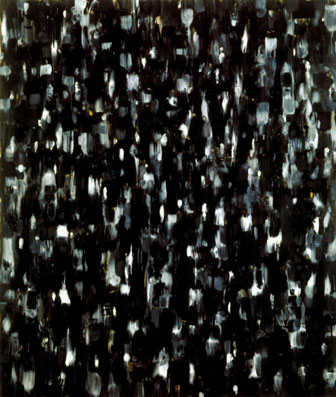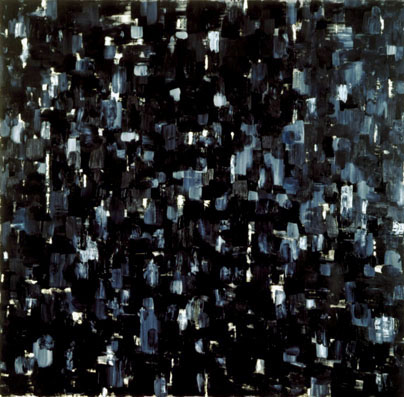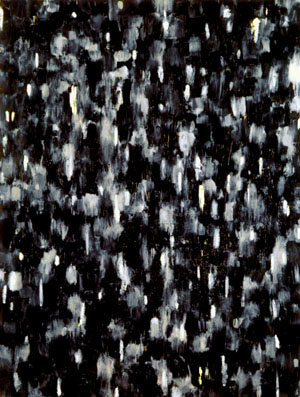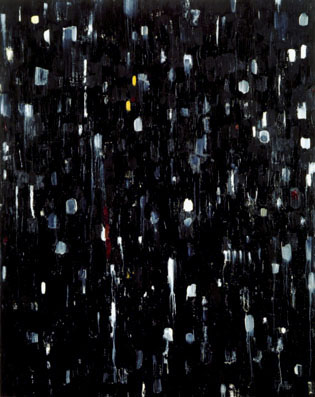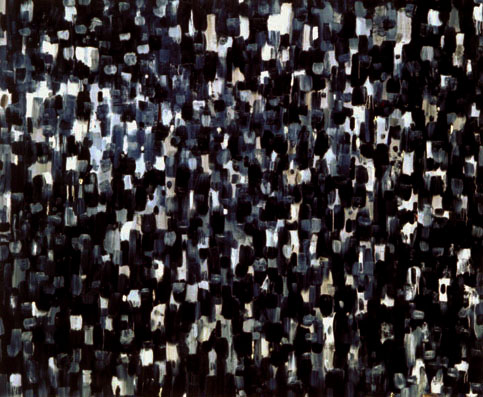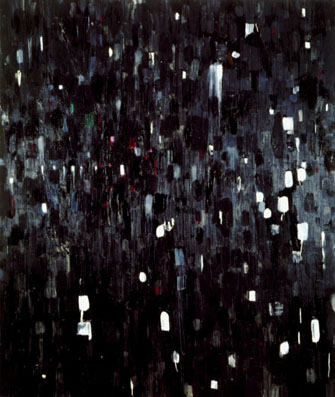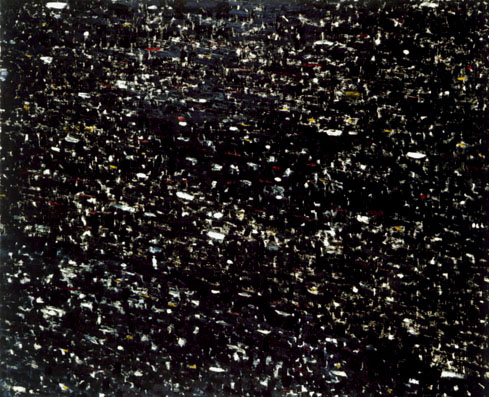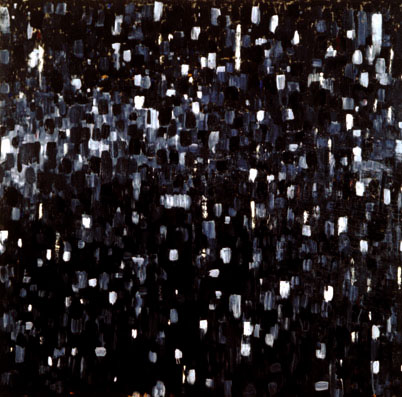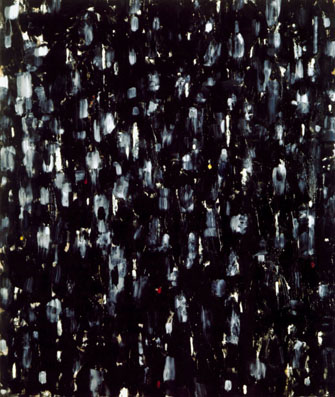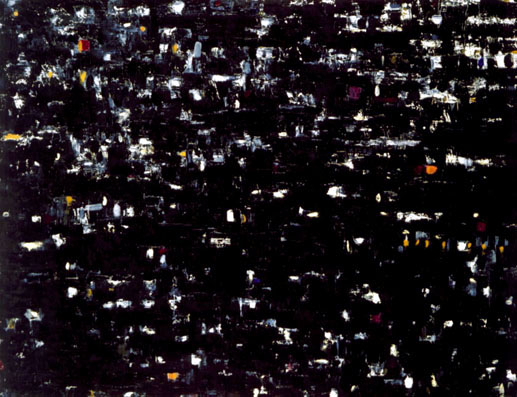Mirna Kresic brings us depicted spaces. Form and matter are folded into a specific space where the law is not the objects stability but, precisely, its becoming. It's a painting that plays the essential problem of representation, to know that the world, is open to us, but not entirely, nor directly. The painting is the meditation of this capture.
In the painting of Mirna Kresic is painted the fugacity of forms reduced to the poor essence of their framework but also the bones of things that conceal the light or, contrarily, feeds by absorption to become space, movement or trace. There is an instability of the structure presented that is not smoothed by the imprinting in this particular place which is the canvas. What is seen is the embrace - or the release - of matter by form, the process of becoming the apparent stability of things like a relic of visual impressions, possibly combined.
We'd vainly attempt to assign an objective referential. Because these structures, blurry, since they don't reduce themselves to depict a strict order or constraining law of transformation, are a visual metaphor, a suggested rhythm. But it's an inherent order, a pulsation that animates from the interior the superposed layers of whom the gaze looses the initial flooring. Their sedimentations thus are not immediately readable, nor wanted that way. This painting defies an analysis which would capture the genesis or archeology through the visible traces subsisting from the layering of the surfaces. The evasion of the structure by successive layers maintains therefore, through this artifice, the disillusion of the perception that catches on to the traces in flats, fragmenting the painted surface.
The reason behind a painting like that, seemingly, is the cognition of a vacuity that would be like the aporia of an objective and univocal relationship to the perceived world. If it's true that the perception, due to the overload of sensations, exhausts itself in relative; the perception, here, through the failure to recreate the order of the striates, renounces the narration. The rhythm, suggested by the flats in counterpoint and the transparencies, is there to stake out with as many marks a problematic space.
- L. Ferrier
